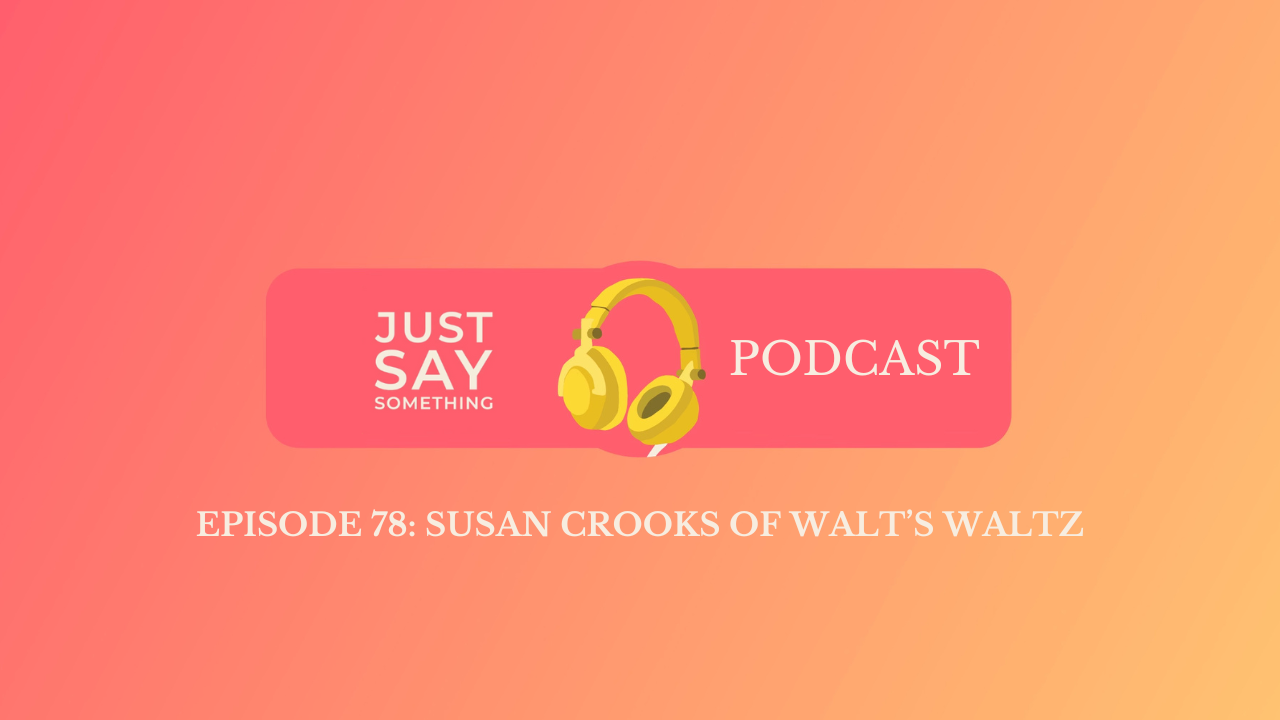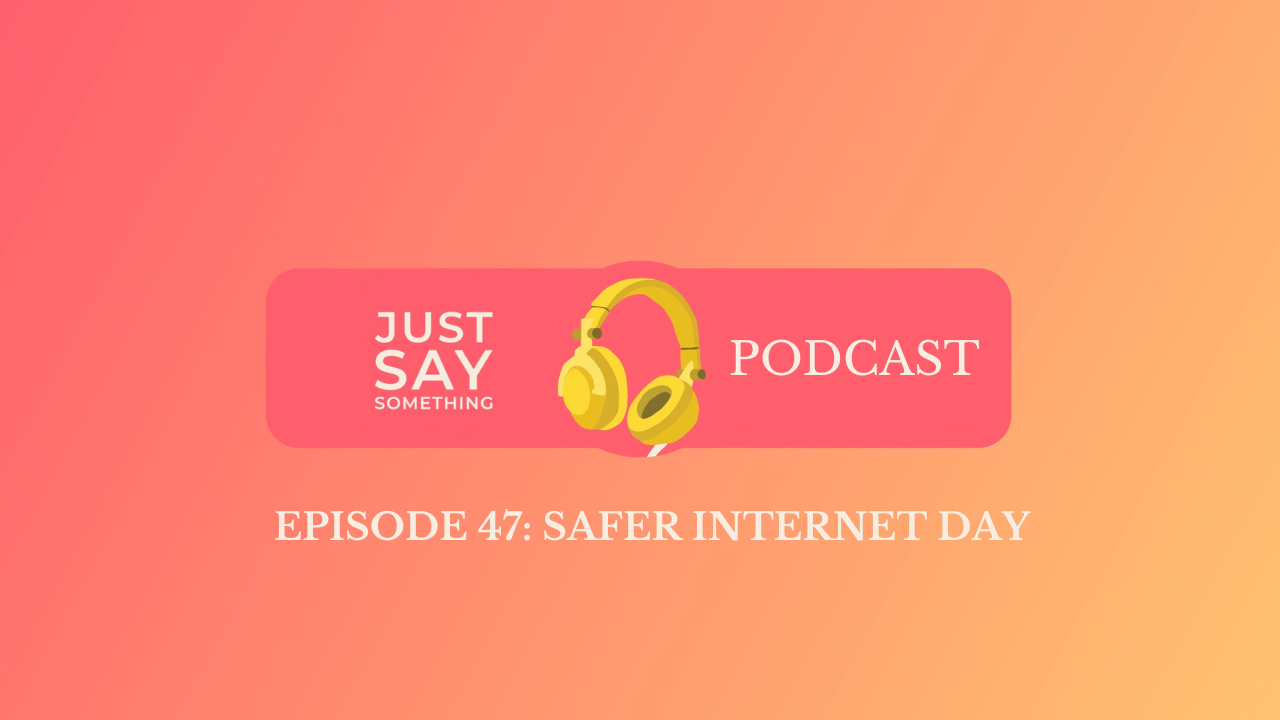Episode Transcript
[00:00:00] Speaker A: Foreign.
[00:00:09] Speaker B: Welcome back to another episode of Just say Something podcast.
Remember to like, share and subscribe so we can grow our audience.
So our guest today, you've met him before, Nick Wolfe. Nick has been with us from. For about six weeks now. I mean months.
[00:00:31] Speaker A: Eight months.
[00:00:32] Speaker B: Eight months. Oh, time flies when you're having fun.
And he's getting ready to do first for him. Well, since he's been here at Just say Something. And he is going to serve as our site coordinator for one of our three Strengthening Families program that will be going on starting this month.
[00:00:59] Speaker A: Yeah, yeah.
[00:01:01] Speaker B: And so, Nick, if you could give us a brief overview of sfp, of what it is, who it's designed for, and why it's important to just say something to deliver in Greenville and Spartanburg.
[00:01:21] Speaker A: Yeah, absolutely.
So the Strengthening Families Program, SFT.
It's an evidence based 11 week program that helps parents and children from the ages of 6 to 17 Build stronger communication by skills and trust.
We brought it to Greenville and Spartanburg because we align ourselves very, very much so with the fundamental skills that they learn in these programs. In the SFP program, you know, it reduces risky behavior, it strengthens the family, and it gives the parents and kids those tools that maybe that those parents didn't have growing up and gives them those skills that they can go on and have throughout their day and be functioning members of society.
[00:02:13] Speaker B: Okay. All right.
So I sign up for 11 weeks.
I show up on night one. What does that look like for me or the family?
[00:02:23] Speaker A: Yeah, the way that I like to say from, from everything that I've seen thus far is just fun.
And we try and make it this, this enjoyable environment where people like to go something that they want to come back to. So we. What does that look like? Exactly. So throughout the 11 weeks they have, we'll start off with a family dinner that we provide for them.
They'll sit down, they'll have conversations just like they would if they're at their own dining room table.
And we try and give them talking points because sometimes, you know, a lot of the time for people in our society, they, they'll sit down and have dinner in front of a tv. Or they, their parents are working three jobs and they're not able to have those conversations or know what the right starting point is for them. So we try and control that environment and give them those, those top points where they can learn and build off of those skills.
After dinner, we'll go and we'll pivot to individual group sessions.
So there's certain topics that the families will learn about.
But we'll break them off into groups of 6 to 11 year olds and 12 to 17. And then the parents, they'll all be separated into their own groups and they all have the same lesson, but they're taught at a different rate. So that way you know that the children can understand properly, the teens can understand, and the parents can understand in their own way and their own maturity level. And then we'll bring them back together into one final session and the families will sit together and then we'll go over those skills and we'll do a fun activity to help them prepare and practice the skills that we taught them that that session.
[00:04:06] Speaker B: Okay, so one week builds on the next until they get to their graduation.
Now, probably two of the biggest obstacles that keeps a family from attending are typically child care and transportation.
[00:04:23] Speaker A: Yeah.
[00:04:23] Speaker B: How do you manage that for this particular program?
[00:04:27] Speaker A: Yeah. So we try our best to make it as turnkey as possible.
We want to take out all those barriers that those families might have. So as far as childcare, anybody that is not in a class or anybody that is under the age of six years old, we will have facilitators that are there that are trained.
They have background checks making sure that everything's safe and they're prepared to watch those kids from the time that the program starts, so that's after dinner, to the final program where everyone comes together.
And then as far as transportation, we try and take care of that as well.
So whether that's giving them a gift card for gas so that way they can have that so they know they don't have to worry about shelling out the money for that.
If there is a problem where they don't have transportation, we can try and find a third party company, whether that's Uber or Lyft.
And in a lot of cases, a lot of those families that they do get get together, they create a community on their own that are joining those programs, they might be able to find rides and we help facilitate that.
[00:05:31] Speaker B: Okay, so 11 weeks.
Again, we always hear that's a big commitment.
What are some of the.
Trying to think of how best a word this.
I know you've only been through one cycle and so if you could tell our listeners maybe a little bit about one of those families, of the difference that you saw in the families, because for that particular one that you were doing, we had teenagers.
[00:06:15] Speaker A: Yeah.
[00:06:16] Speaker B: And you were. You and Stacy were working with the teenagers.
So if there's a story that you could tell about one of the families through the last Cycle of sfp?
[00:06:30] Speaker A: Yeah, absolutely.
So we had a family that the mother was coming in with her two teenage boys who were in my program and then had another child that was in the children's class.
All three of the kids had some type of behavioral issue. They were, you know, always very kind in the class, but at home they were having a lot of problems. And, you know, the mother was coming in, you know, upset with the fact that her kids are not listening to her. And she's doing a lot of effort at home to try and make sure that there, there's food on the table, there's, you know, they're getting to school on time, and, you know, she's working two jobs herself.
So I think for myself and Stacy, who was running the teen class, it was very important for us to try and have the kids understand what the mom is also going through. And that's something that I don't think necessarily happens, that people don't realize. What we do in these classes is it's not always about the parents understanding the kids and where they're at. It's also the parents under the kids understanding where the parents are at.
And, you know, one of the things that, you know, it's a small thing, but one of the things that, that we were able to help out with was creating that idea. And especially in the two teens head that their mom is working so hard to make sure that they have a roof over their head, that they have all the necessities that they need so they don't have to need or want for anything. And it was going underappreciated. So we tried to work something out where a lot of these programs or sessions that we have throughout the week, there are certain things that we try and do. So one, it's called my time.
So with my time, the parent and the kid decides on something that they want to do where it's 10 minutes they can spend together. And that goes both ways. It's not just necessarily a parent choosing what or the kid choosing.
So the kids wanted to play video games, so that's fine. But then they also had to do something that the mom wanted to do to experience that with them. One of the things that she wanted them to do was to wash the dishes with them or take the garbage out with them.
And, you know, unfortunately, that's not something that everyone always wants to do.
[00:08:51] Speaker B: Right. I remember those days.
[00:08:53] Speaker A: Absolutely. Absolutely.
But it's important for them to see because those sacrifices that their parents are making for them, it, it, it goes a long way.
So, you know, from the start of it, they were not okay with that.
But going on into each week, they were very helpful with their mom at home. They started doing chores, they started doing things with their mom not having to ask them.
And there were rewards with it, but it was also not only just because they were getting a reward necessarily, but because there they could see that they were a relief to their mom.
And something so little, something that could take 10 minutes, could save somebody, some. Someone else so much, so much time.
[00:09:38] Speaker B: Right.
[00:09:40] Speaker A: So it turned out that whole family excelled in our program.
We take a lot of pride in that.
You know, we still stay in very good communication with the mom. We've helped them with other programs and classes that we offer.
But again, it's. It's the little things that. That matter in the situation, so.
[00:09:59] Speaker B: Right, right. And you never know how that's going to affect them down the road.
So.
Yeah, that. And that's just. We've been doing strengthening families since 2018.
And so there's so many of those stories that we could tell where the kids and the parents just come together in so many different ways.
So there are 11 weeks. So what happens week 11?
[00:10:32] Speaker A: Yeah, so week 11, we try and make it as special as possible for the families because that's a big deal that they. They went all the way through because it's 11 weeks. That's, that's, you know, over two and a half months of them going and participating each week and taking each of these classes, doing homework, doing the work at home of not even just writing things out, but actually practicing these skills with their families. So like I said, we try and make this as special as possible. So we have what we call graduation.
We get the families together. We try and have them pick what they want as the final meal, something really nice and special.
We try and give them a gift and try and make the gift a substantial one because it's a. It's a celebration. This is a big deal for them.
[00:11:15] Speaker B: Right.
[00:11:16] Speaker A: As it. As it should be.
And you know, again, it's, It's. It's. For us, it's just about seeing these things come to fruition and seeing the smiles on these. These parents faces that their. Their kids are starting to listen and for the kids that their parents are starting to understand them a little bit more and maybe their situations. Because again, it comes down to, you know, there's. There's so many times that something so minute to a parent that it might not seem like a big deal that a child is going through is the biggest deal for that kid.
[00:11:46] Speaker B: Right.
[00:11:46] Speaker A: So it's a matter of them understanding that just because it may not be priority one to them is to their child. So just having them be able to communicate with each other and having that understanding is powerful.
[00:11:58] Speaker B: Right, right.
[00:11:59] Speaker A: So, you know, the graduation, like I said, it's just about celebrating those wins that they've gotten and hopefully continuing that direction. Yeah.
[00:12:06] Speaker B: Okay. All right. Well, I know you're getting ready to start or we have several of these going on starting in September.
[00:12:15] Speaker A: Yeah.
[00:12:15] Speaker B: And so if you could review those for our listeners. I think all of our classes are full.
[00:12:22] Speaker A: Yeah.
[00:12:23] Speaker B: Unfortunately, our funder for these limits the number of families that we can have per cycle. And so if you could do a quick rundown of the three cycles that will. That are starting this month.
[00:12:37] Speaker A: Yeah, absolutely. So we are doing a cycle in Middle Tiger, which is in Spartanburg. So that started last week. That was the first week. So we have another one that's starting up today or the second cycle for that session, rather. And then my cycle on Wednesday of this week, it is going to be at Alexander Elementary.
So pretty excited for that. We'll finish up around about the middle of November, so right before Thanksgiving.
And then we have our last one that I believe Starting on the 28th or 29th of September at Lake Forest Elementary School.
[00:13:11] Speaker B: Okay.
[00:13:12] Speaker A: And I will say those, those, the first one and the third one that I mentioned are also in Spanish.
So we do offer both these programs in English and Spanish.
[00:13:21] Speaker B: Yeah. Yeah. All right. That's great. So if there was one thing that you haven't said that you wanted our listeners to know about strengthening families, what would that be?
[00:13:33] Speaker A: Oh, that's a great question.
I suppose I would say that, you know, we're not trying to reinvent the wheel. We're just trying to maybe show families and these people skills that they might not already have and if they do, to improve on them.
We're not ever, and this is something that I think just, just say something lives by. We're not ever here to judge anybody.
[00:14:01] Speaker B: Right.
[00:14:01] Speaker A: We're here to show support.
So there might be something that someone, one family is slacking in that another family excels in, but they should not be afraid to communicate that. So that way, because each, each family is unique to their own, right?
[00:14:15] Speaker B: Absolutely.
[00:14:16] Speaker A: So never be afraid to talk about what's going on in your life, because again, we do not judge.
That's not what this program is for. It's to show support and create tools and skills so that way they can be build off that.
[00:14:31] Speaker B: Okay. All right, cool. So you heard it firsthand from Nick. And again, we have three of our strengthening families program starting this month.
Unfortunately, they all are full, but we will have more cycles going on starting in early 2026. Gosh, it's hard to believe that's right around the corner.
All right, well, thank you, Nick. And this wraps up another episode of Just say Something podcast. My name is Phil Clark, and be sure to, like, subscribe and share, and we look forward to seeing you next time. Bye. Bye.


